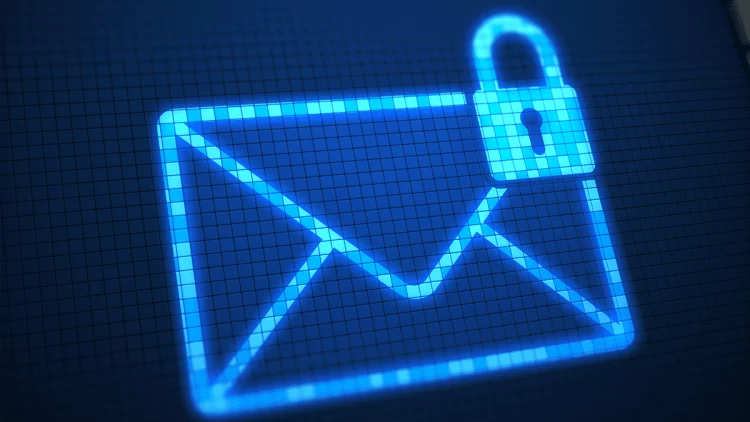The internet is often described as the nervous system of the modern world — connecting billions, enabling commerce, communication, and innovation. Yet, lurking on the horizon is a technology that threatens to disrupt this vast digital ecosystem in unprecedented ways: quantum computing. The question many ask is, could quantum computing actually break the internet? Let’s dive into the quantum realm to explore this fascinating possibility.
Introduction: What Does “Breaking the Internet” Even Mean?
When we say “break the internet,” we’re not talking about a server crash or an outage caused by too many cat videos being streamed at once. We mean a fundamental compromise of the underlying security infrastructure that keeps online data safe and trustworthy.
The internet’s security backbone is built on cryptographic algorithms — mathematical puzzles that protect everything from online banking to private emails. If these cryptographic codes can be cracked quickly, then malicious actors could intercept communications, impersonate others, and steal sensitive data — essentially breaking the trust on which the internet depends.
Classical Cryptography: The Current Security Model
Before jumping into quantum threats, it’s important to understand classical cryptography basics.
- Public-Key Cryptography: Systems like RSA and ECC (Elliptic Curve Cryptography) use pairs of keys — one public, one private. The security relies on the difficulty of solving certain math problems (like factoring huge numbers or solving discrete logarithms).
- Symmetric Cryptography: Algorithms such as AES (Advanced Encryption Standard) use the same key for encryption and decryption. The security here depends on key length and complexity.
Today, most internet security protocols (e.g., HTTPS) rely heavily on these cryptographic methods. The underlying assumption: classical computers can’t solve these problems efficiently, making brute-force attacks impractical.
Enter Quantum Computing: A Paradigm Shift
Quantum computers harness principles of quantum mechanics — superposition, entanglement, and interference — to perform computations differently from classical machines.

- Superposition: Quantum bits, or qubits, can represent 0 and 1 simultaneously, enabling parallel processing.
- Entanglement: Qubits become correlated in ways that classical bits can’t, allowing complex operations on linked data.
- Quantum Interference: Enables the amplification of correct solutions and cancellation of wrong ones.
This combination gives quantum computers the potential to solve certain problems exponentially faster than classical computers.
Shor’s Algorithm: The Quantum Kryptonite of Cryptography
In 1994, mathematician Peter Shor introduced an algorithm that could factor large integers efficiently on a quantum computer — a task classical computers find extremely difficult.
Why does this matter? RSA cryptography security hinges on the hardness of factoring large numbers. If a sufficiently powerful quantum computer runs Shor’s algorithm, it could break RSA encryption, rendering the keys useless.
Similarly, Shor’s algorithm also threatens ECC, which relies on the difficulty of solving discrete logarithm problems.
Grover’s Algorithm: Speeding Up Symmetric Crypto Attacks
While Shor’s algorithm directly attacks public-key cryptography, Grover’s algorithm offers a quadratic speed-up for searching unsorted databases. This means symmetric key algorithms like AES are not completely immune; their effective security strength is halved.
For example, AES-256, which currently provides 256-bit security, would be reduced in effective strength to about 128 bits against a quantum adversary — still secure but requiring increased key lengths for future-proofing.
How Realistic is the Threat?
The question isn’t just if quantum computers can break the internet, but when.
- Current Quantum Hardware: Today’s quantum computers have fewer than 100 qubits, noisy operations, and limited coherence times. Breaking RSA-2048 would require thousands of logical qubits with error correction — far beyond current capabilities.
- Error Correction and Scalability: Building large-scale, fault-tolerant quantum computers remains one of the greatest engineering challenges. Quantum error correction demands many physical qubits to create a single logical qubit.
- Timeline Estimates: Experts estimate that a quantum computer capable of breaking RSA-2048 might emerge in 10 to 30 years. This range depends heavily on technological breakthroughs and investments.
Post-Quantum Cryptography: The Internet’s Defense
Fortunately, the cryptographic community isn’t standing still.
- Post-Quantum Algorithms: Researchers are developing quantum-resistant cryptographic algorithms based on problems believed to be hard even for quantum computers — like lattice-based, hash-based, code-based, and multivariate polynomial cryptography.
- NIST Standardization Effort: The U.S. National Institute of Standards and Technology (NIST) has been running a multi-year competition to select post-quantum cryptographic standards. In 2022, finalists were announced, with standardization expected soon.
- Migration Challenges: Transitioning global internet infrastructure to post-quantum cryptography is complex. Compatibility, performance, and interoperability must be addressed carefully.

Beyond Cryptography: Other Internet Impacts of Quantum Computing
Quantum computing’s impact on the internet goes beyond cracking encryption.
Quantum Key Distribution (QKD)
QKD uses principles of quantum mechanics to enable two parties to generate shared, secret keys with provable security. Unlike classical cryptography, eavesdropping attempts disturb the quantum states, revealing interception.
QKD offers a new security paradigm, but requires specialized hardware and infrastructure, limiting its widespread adoption currently.
Quantum Internet: The Next Frontier
Researchers envision a future quantum internet where quantum information is transmitted across quantum networks, enabling new applications such as ultra-secure communication, distributed quantum computing, and enhanced sensing.
Building such a network involves developing quantum repeaters, quantum routers, and overcoming decoherence challenges over long distances.
What Happens If Quantum Computers Break Today’s Internet Encryption?
If a powerful quantum computer appears suddenly without preparations:
- Data at Risk: Past encrypted data captured and stored could be decrypted (“harvest now, decrypt later” attacks), threatening privacy retrospectively.
- Identity Theft and Fraud: Impersonation and digital signature forgery become easier.
- Financial and National Security Risks: Critical infrastructure, banking systems, and government communications could be compromised.
Hence, a proactive, gradual migration to quantum-resistant technologies is essential to avoid catastrophic fallout.
Could Quantum Computing Break More Than Just the Internet?
Yes. The impact of quantum computing extends to any system relying on vulnerable cryptography:
- Blockchain and Cryptocurrencies: Many blockchain systems depend on ECC. Quantum attacks could undermine transaction authenticity.
- Cloud Security: Encrypted cloud data could be exposed.
- IoT Devices: Many Internet of Things devices use lightweight cryptography, potentially even more vulnerable.
The Role of Governments and Industry
Governments worldwide recognize quantum computing’s dual-use potential and risks:
- Funding quantum research while investing in cybersecurity modernization.
- Promoting international standards for quantum-safe algorithms.
- Encouraging public-private partnerships for a secure quantum transition.
Tech giants like Google, IBM, and Microsoft are developing both quantum hardware and software, often with open collaboration to push forward quantum-safe internet technologies.
Conclusion: Will Quantum Computing Break the Internet?
Quantum computing holds tremendous promise but also poses serious threats to today’s internet security.
- It could break the cryptographic foundations of the internet, but only when sufficiently powerful, fault-tolerant quantum computers become a reality.
- The threat is real and urgent enough that the global community is actively working on quantum-safe cryptographic solutions.
- The future internet will likely be a hybrid ecosystem, blending classical, quantum-resistant, and quantum-enhanced technologies.
In short, the internet is not doomed, but it will have to evolve — much like it has through previous waves of innovation and disruption.











































Discussion about this post